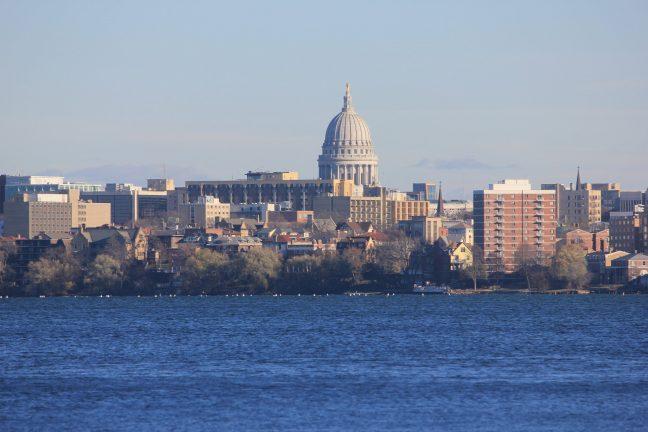The Madison City Council is debating a new ordinance that would limit plastic straw distribution in restaurants.
Ald. Syed Abbas, a representative from District 12, proposed the law which would prohibit establishments from providing plastic straws unless customers ask for them.
According to NBC News, the movement to reverse the negative effects that humans have had on the planet has been gradual at best. The article suggests that the effects of climate change could be irreversible.
This law works to combat said ever-growing issue.
The Wisconsin Restaurant Association recently influenced a bill to restrict prohibitions on takeout containers. The law, however, does not include straws, giving Madison a proper loophole to make necessary changes.
The WRA stated this bill “is the first attempt by a municipality in Wisconsin to restrict plastic straws.”
The ordinance will be regulated through a fine of $200, climbing to $500 and even $750 with every offense. With such intense fines, the ordinance will be evaluated by several committees before a final vote.
Many Madison establishments have voiced their support for the proposal, and have enacted their own policies for straw distribution.
The University of Wisconsin has supported an eco-friendly culture. The dining halls have opted for “sippy-cup” lids for both hot and cold drinks in their cafes, and they only use paper straws for smoothies, frappes and other thick drinks.
While they’ve made changes to cafes, the dining stations still provide grab and go straws and tops by their drinks section.
Short Stack Eatery, a restaurant on State Street, has advocated throughout its coordination. Co-owners Alex Lindenmeyer and Sinéad McHugh attended the first city council meeting to give input and learn more about the ordinance.
The restaurant has taken a proactive approach in eliminating plastic straws altogether by replacing them with paper and only when a customer asks for one.
The practice has saved Short Stack Eatery money and increased its conservation awareness. As a community-minded establishment, they feel they are known for their continuous efforts toward environmental stability, whether through a heavily plant-based menu or focus on recyclable waste products, according to the co-owners.
The restaurant gave a positive reaction to the government’s efforts, but said the ordinance is still not enough.
“Straws are a great start, but we need to focus on Styrofoam and other single-use plastics,” Lindenmeyer said. “Not to mention a city-wide composting program.”
Both local and chain establishments are stepping up to comply with the ordinance, even before its initiation. Starbucks has already announced that it will pull plastic straws in 2020 and switch to the “sippy-cup” lids. Some establishments have already started to hand out these lids upon request.
Adrian Perez, a barista at Starbucks, added that this may turn a profit for the company, opting customers to purchase reusable straws and cups from the cafe.
Collectivo Coffee has gotten rid of their plastic straws in favor of paper ones. Collectivo has also placed signs on dispensers asking customers to skip the straws.
Collective Coffee barista Reily Pond said that, if enacted, the Madison straw ordinance will cause a shift in dining culture.
“Some people have gotten very used to plastic straws … and I’m sure this will take an adjustment period,” Pond said.
Both Perez and the co-owners of Short Stack Eatery agree that while the transition may be difficult at first, eventually, they hope people will become more open to the idea.
Madison is not the only city to have considered the move.
Plastic straws and utensils were banned from Seattle restaurants beginning June 2018, when an ordinance first passed in 2010 took effect. The measure made Seattle the first U.S. city recognized for enacting a ban on plastic straws.
If the ordinance makes it through the committees, the Madison City Council will meet, discuss and vote accordingly.


